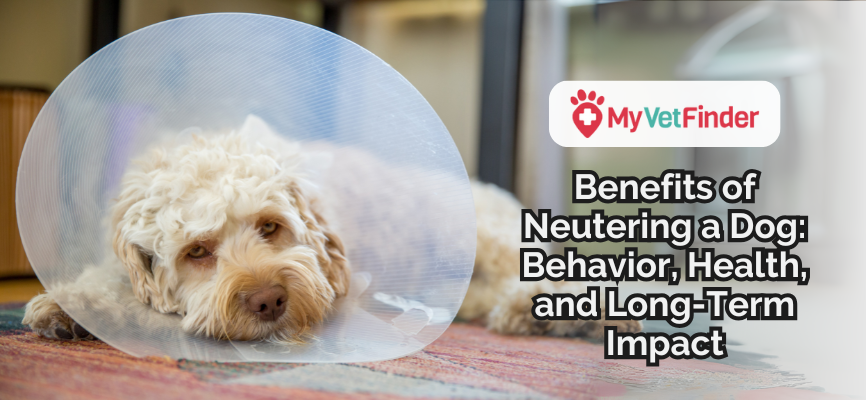
Benefits of Neutering a Dog: Behavior, Health, and Long-Term Impact

Are you planning to neuter your dog but not sure about the effects?
Don’t worry, you’re not alone. Many pet parents grapple with the decision of whether to have their pets neutered. Neutering is known to have various effects, including changes in behavior, energy levels, and overall health. However, you don’t need to feel overwhelmed by conflicting advice and opinions regarding your pet’s health and well-being.
Neutering is a common non-surgical procedure that pet parents often choose for various reasons. The most common reason is to control breeding, but there are also health-related benefits to consider. In this article, we’ll discuss dog neutering, its benefits, and its effects. We’ll also address common questions to help you make an informed decision as a responsible pet owner.
What is Dog Neutering?
Neutering is a straightforward surgical procedure that prevents male dogs from reproducing. It involves the removal of the testicles, eliminating sperm production, and significantly reducing testosterone levels. Beyond preventing unwanted litter, this procedure has extensive implications for a dog’s health and behavior.
Neutering is typically performed on dogs between 6 and 9 months of age. Only licensed veterinarians possess the authorization to carry out this surgery, ensuring adherence to proper procedures. Keep in mind that the appropriate age for neutering may vary depending on the breed. Be sure to visit your veterinarian for a check-up to determine if your dog is ready for the procedure.
Benefits of Neutering a Dog
From reducing the risk of certain cancers to calming aggressive tendencies, the benefits of neutering can significantly improve your dog’s quality of life. Let’s take a closer look at why this procedure is so beneficial.
Health Benefits
-
Reduced Risk of Certain Cancers: Neutering eliminates the possibility of testicular cancer and significantly lowers the risk of prostate issues.
-
Prevention of Reproductive Health Problems: This includes conditions like testicular infections and some hormonal disorders.
Behavioral Benefits
-
Reduced Marking Behavior: Neutering often helps curb urine marking, especially if done before it becomes a habit.
-
Less Aggression: While neutering doesn’t guarantee a complete transformation, it can reduce testosterone-driven aggression in many dogs.
-
Calmer Temperament: Many owners report that their neutered dogs are less reactive and more focused during activities after the procedure.
If you’re wondering if neutering helps with marking or aggression, the answer is a resounding yes in most cases. However, training and environmental factors should also be considered.
Effects of Neutering a Dog
Apart from the behavioral and health benefits of having your dog neutered, it is also important to be aware of both the short-term and long-term effects before undergoing the procedure. Let’s discuss these effects so that you can be better prepared if you decide to proceed with the procedure.
Short-Term Effects
After the procedure, dogs may experience mild discomfort and grogginess from anesthesia—this is common. Make sure to prepare them a safe and comfortable place because they will need to rest after the surgery. Some dogs will not pass stool for 1 to 3 days. This is normal and should not be a cause for concern.
Healing from this procedure typically takes 5-7 days. Most dogs return to their usual energy levels shortly after, given that the procedure went as planned.
Long-Term Effects
Neutering often results in more manageable behavior and a lower tendency to roam or fight with other dogs. However, it’s important to set realistic expectations—neutering won’t "fix" behavioral issues rooted in poor training or trauma.
Making the Right Choice for Your Dog
Deciding to neuter your dog is a significant step toward ensuring their health and happiness. Neutering has well-documented advantages, ranging from preventing certain diseases to improving behavior. While the procedure may not solve every behavioral issue, it provides a strong foundation for a well-rounded and well-behaved pet.
Make sure to consult your veterinarian—they will provide tailored advice to guide you in making the best decision for your furry friend.
Recent

May 09, 2025

May 02, 2025

April 25, 2025

March 31, 2025

March 31, 2025

